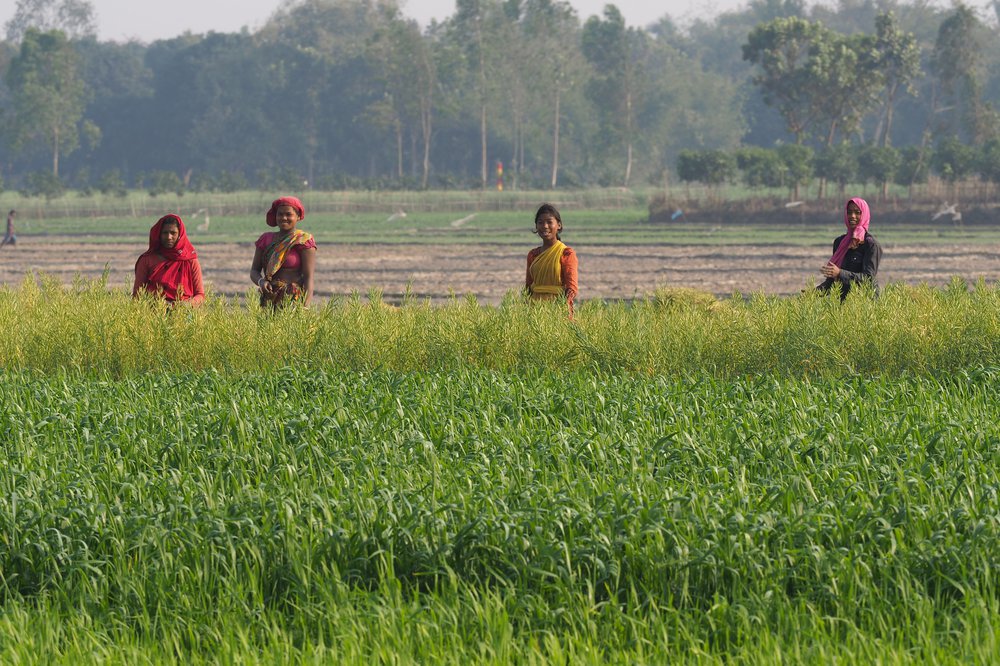This year we are celebrating the 50th anniversary of our great independence. As a sovereign nation, Bangladesh has made remarkable progress in economic growth, poverty reduction, life expectancy, human development index, and many other social development indicators. If Bangladesh manages to keep the momentum, we will make substantial progress in fulfilling the global 2030 Agenda for sustainable development with its pledge to leave no one behind. But how far are we in achieving the Sustainable Development Goals for our marginalised people like indigenous communities?
Accounting for around 2% of the total population, indigenous people are not big in numbers, but they still deserve development and all basic rights that are enshrined in the national constitution. These community people also sacrificed their lives for the independence of the country. In the 50 years that have passed since independence, we have observed a number of significant developments in relation to the rights of indigenous peoples of the country. If we look at the government’s policy on indigenous peoples, there is a clear commitment to ensure the betterment of the marginalised groups, including indigenous peoples. Through the 15th amendment of the Constitution, the government has recognised indigenous peoples as “tribes, minor races, ethnic sects and communities”. This is a positive development as per the government as it ensures the identity of these marginalised groups.
Further, the Ministry of Cultural Affairs has amended the controversial list of ethnic communities that was included in the Small Ethnic Groups Cultural Institution Act of 2010 as recommended by a National Advisory Committee. Now 50 indigenous groups are officially recognised in the country. Another remarkable step from the government was to introduce school textbooks in five indigenous languages to facilitate mother tongue based primary education as stipulated in the National Education Policy. Signing the Chittagong Hill Tracts (CHT) Accord of 1997 (popularly known as ‘Peace Accord’) was another bold step to facilitate development, peace and harmony in the south-eastern part of the country by establishing a kind of power-sharing mechanism with the indigenous and local people of the CHT.

Young women working in the field in rural Bangladesh. Photo: ILC Asia
One of the major impediments to the development and identify of the indigenous communities is the constant threat of eviction from their ancestral land in the name of development, tourism, camps of security forces, economic zones, eco-parks, national parks and reserve forest. Their lands are often taken away without their consent.
The best example of this kind of land grabbing is the plan to construct a luxury five-star hotel in Mro people’s traditional land in Chimbuk range of Bandarban hill district. The ancestral lands of Mro people have reportedly been encroached jointly by a Welfare Trust, and business giant Sikder Group’s R&R Holdings Ltd. The hotel and its accompanying modern recreational facilities, including a dozen luxury villas, cable cars, and swimming pool, will adversely affect an estimated 800-1000 acres of lands belonging to nearly 600 indigenous families. Some Mro families have already been evicted while others are under threat of losing their lands. In the midst of the COVID-19 crisis, Mro villagers as well as different national and international advocacy groups staged rallies and signed petitions addressing the policy makers, including Prime Minister Sheikh Hasina. However, a positive response is yet to come from the authorities to address the matter.
For the people of the CHT, the historic CHT Accord is an illusion and the hope that the Accord will lead to betterment for the indigenous communities is fading. The Accord is considered a constructive arrangement between indigenous peoples and the Government of Bangladesh, but even after 23 years, key provisions of the Accord remain unimplemented or only partially implemented. This includes making the CHT Land Commission functional, devolution of power and function to the CHT institutions, preservation of tribal area characteristics of the CHT region, demilitarisation, and rehabilitation of internally displaced people. However, the repeated commitment of the Government to fully implement the CHT Accord and bring development to the region remain an unfulfilled promise to the growing frustration of the indigenous people.

Indigenous youth constructing makeshift quarantine houses in the forest. Photo: Kapaeeng Foundation
The 8th Five Year Plan undertaken by the Bangladesh government for the period of 2021-2025 reiterates previous Five-Year Plans by promising that indigenous peoples of the country will no longer be left behind. With the theme “Promoting Prosperity and Fostering Inclusiveness” the Plan acknowledges the vulnerable situation of the indigenous peoples and ensures access to education, health care, food and nutrition, employment, and protection of rights to land and other resources for indigenous peoples.
All these commitments are truly encouraging for all of us. And if the commitments do not continue to remain empty promises but are in fact followed by concrete action, Bangladesh will be able to pride itself on having ensured development that has not left anyone behind. Without their active participation, it is not possible to narrow the gaps and achieve Sustainable Development Goals. A strong social contract among all the stakeholders is needed, which in turn requires the realisation of indigenous peoples’ political rights. Otherwise, all the promises will remain on paper only and the essence of our great independence will be meaningless to the indigenous peoples of this land.



